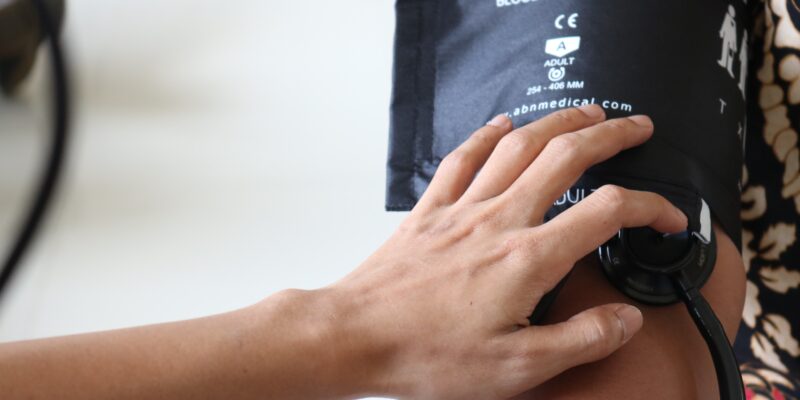The old adage “prevention is better than cure” holds true when it comes to your health. Regular health check-ups are essential to maintaining good health and preventing diseases. Many people wait until they are sick to see a doctor, but this approach can be costly and dangerous. Early detection of diseases through regular check-ups can save lives and prevent serious health problems. In this post, we will explore the power of prevention and why regular health check-ups are essential for maintaining overall health and well-being. We will also discuss the benefits of regular check-ups and how they can help you stay ahead of the game when it comes to your health. Whether you’re a busy professional or a stay-at-home parent, this post will show you why taking care of your health should always be a top priority.
1. Introduction: The Importance of Regular Health Check-Ups
Regular health check-ups are essential for maintaining good health and well-being. These check-ups are designed to detect any signs of illness or disease early on, allowing for prompt treatment and management. While many people tend to avoid or put off getting regular check-ups, the truth is that prevention is key when it comes to maintaining good health. By staying on top of your health and getting regular check-ups, you can catch health issues before they become more serious and harder to treat.
Moreover, health check-ups can help you establish a baseline for your health, allowing you to track changes over time. This can be especially important if you have any existing health conditions or if you have a family history of certain diseases. By monitoring your health through regular check-ups, you can take steps to manage any conditions you may have and make lifestyle changes that can improve your overall health and well-being.
Ultimately, regular health check-ups can help you take control of your health and ensure that you are doing everything you can to stay healthy. In this blog post, we will explore the importance of regular check-ups, what to expect during a check-up, and how often you should be getting check-ups based on your age, gender, and overall health. So, whether you are due for a check-up or are simply interested in learning more about the importance of preventive healthcare, read on to discover why regular health check-ups are so essential.
2. The Benefits of Preventive Care for Long-Term Health
Preventive care is an essential aspect of maintaining good health in the long run. With regular health check-ups, you can identify potential health issues before they become more serious, allowing for early intervention and treatment. This not only helps you avoid unnecessary complications and discomfort but also helps you save on healthcare costs in the long run.
Preventive care can also help you monitor and manage chronic conditions such as diabetes, hypertension, and high cholesterol levels. By keeping a close watch on these conditions, you can take the necessary steps to keep them under control and prevent complications such as heart disease, stroke, and kidney damage.
In addition, preventive care can help you maintain a healthy lifestyle and prevent the onset of chronic diseases altogether. This can include regular screenings for cancer, vaccinations to protect against infectious diseases, and counseling on lifestyle changes such as healthy eating, exercise, and stress management.
Overall, preventive care is an investment in your long-term health and well-being. By taking a proactive approach to your health, you can stay healthy, avoid unnecessary complications, and enjoy a higher quality of life for years to come. So, make sure to schedule your regular health check-ups and work with your healthcare provider to develop a personalized preventive care plan that meets your specific needs and goals.
3. The Risks of Skipping Regular Health Check-Ups
Skipping regular health check-ups can be detrimental to your health. The reason being that during a health check-up, your doctor can detect any potential health problems that you may not have been aware of. These problems can be addressed early, before they develop into serious medical conditions. By skipping regular check-ups, you may be missing out on the opportunity to detect and prevent serious health issues.
Regular check-ups can also help you keep track of your health and identify any changes that may have occurred since your last check-up. This can include changes in weight, blood pressure, cholesterol levels, and more. By keeping track of these changes, you can work with your doctor to make lifestyle changes and prevent the development of chronic conditions such as diabetes, heart disease, and high blood pressure.
Furthermore, regular check-ups are important for managing ongoing health conditions such as asthma, arthritis, and thyroid disorders. By monitoring these conditions, your doctor can adjust your treatment plan as needed and ensure that you are receiving the best care possible.
In summary, skipping regular health check-ups can lead to undetected health problems, missed opportunities for prevention, and inadequate management of ongoing health conditions. It’s important to prioritize your health and schedule regular check-ups with your doctor.
4. What to Expect During a Health Check-Up
During a health check-up, there are a number of things that you can expect to happen. Firstly, your healthcare provider will typically ask you about your medical history and any current health concerns that you may have. They will likely ask you about your lifestyle habits, including your diet, exercise routine, and any tobacco or alcohol use. This information will help your healthcare provider to better understand your overall health and identify any potential risk factors that may need to be addressed.
Next, they will likely perform a physical exam, which may include checking your blood pressure, heart rate, and respiration rate. Your healthcare provider may also take a sample of your blood or urine to test for various health indicators, such as cholesterol or blood sugar levels. Depending on your age and gender, they may also perform additional tests, such as a mammogram or prostate exam.
Overall, a health check-up is an opportunity for you to take charge of your health and ensure that you are doing everything you can to prevent illness and disease. By working closely with your healthcare provider, you can identify any potential health concerns early on and take steps to address them before they become more serious. So don’t neglect your health – schedule a health check-up today and take the first step towards a healthier, happier you!
5. Common Tests and Screenings
There are a number of common tests and screenings that can be performed during a regular health check-up, depending on your age, sex, and medical history. One of the most common tests is a blood pressure check, which measures the force of blood against the walls of your arteries. High blood pressure can lead to serious health issues such as heart disease and stroke, so it’s important to get your blood pressure checked regularly.
Another common screening is a cholesterol check, which measures the amount of cholesterol in your blood. High cholesterol can also lead to heart disease and stroke, so it’s important to keep an eye on your levels and make lifestyle changes if necessary.
For women, a pap smear is a common screening for cervical cancer. This test involves collecting cells from the cervix and examining them for abnormalities. The frequency of this test depends on your age and medical history, so be sure to talk to your healthcare provider about when you should be getting a pap smear.
For men, a prostate exam is a screening for prostate cancer. This typically involves a physical exam and a blood test to check for prostate-specific antigen (PSA) levels. Again, the frequency of these tests depends on your age and medical history.
Other common tests and screenings that may be included in a regular health check-up include blood glucose testing, mammograms, colonoscopies, and bone density scans. Your healthcare provider will be able to advise you on which tests are appropriate for you based on your individual health needs.
6. Health Check-Ups for Different Life Stages
Different life stages require different types of health check-ups. It’s important to know what to expect during each stage of life to ensure good health and well-being. For children, regular health check-ups are essential to monitor their growth and development, identify any potential health issues, and administer necessary vaccinations. These check-ups are usually scheduled at specific intervals, such as at birth, 1 month, 2 months, 4 months, 6 months, 9 months, 12 months, and so on.
As we move into adolescence and young adulthood, regular check-ups become less frequent but no less important. This is a time when many potential health issues can arise, such as reproductive health problems or mental health concerns. Regular check-ups can help catch these issues early, before they become more serious.
As we move into middle age, regular check-ups become more important for detecting chronic diseases such as diabetes, heart disease, and cancer. These check-ups should include screenings for cholesterol levels, blood pressure, and cancer. For older adults, regular check-ups are essential for maintaining good health and preventing age-related illnesses. These check-ups should include screenings for osteoporosis, cognitive decline, and other age-related health issues.
No matter what stage of life you are in, regular health check-ups are essential for maintaining good health and well-being. They can help identify potential health issues early, leading to better treatment outcomes and a higher quality of life.











